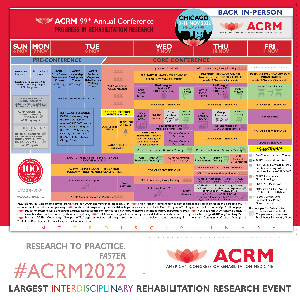Back
Stroke
Constraint-Induced Language Therapy for Aphasia: Evidence from Systematic Reviews and Meta-Analyses
Thursday, November 10, 2022
12:39 PM – 12:44 PM
Location: Station 5

Anastasia M. Raymer, PhD, CCC-SLP
Professor of Communication Disorders
Old Dominion University
Norfolk, Virginia, United States- JR
Jane Roitsch
Assistant Professor
Old Dominion University
Norfolk, Virginia, United States
Presenting Author(s)
Non-presenting Author(s)
Objective(s): Constraint induced language therapy (CILT) is an aphasia treatment that incorporates use-dependent principles to facilitate language recovery in stroke-induced aphasia (Pulvermuller et al., 2001). Several systematic reviews (SR) have been conducted to summarize the growing CILT literature. The purpose of this project was to appraise the quality and examine the weight of treatment evidence reported in CILT SRs.
Data Sources: PsychInfo, PubMed, SpeechBite, ASHA Compendium of Systematic Reviews
Study Selection: We identified six SRs that examined CILT for post-stroke aphasia in the English literature, three that included meta-analysis (MA).
Data Extraction: Two reviewers rated each SR for methodologic quality using the AMSTAR2 (Shea et al., 2017) and extracted findings across the six reviews. Coding reliability for the AMSTAR2 showed 94.8% agreement.
Data Synthesis: The quality of SRs varied on the AMSTAR2 scale (range 1.5-9.5, mean 7/16). Five SRs addressed more than half of the appraisal criteria. The number of original studies included in the SRs ranged from 5 to 24, as some reviews included only RCTs and others included all designs. CILT SRs that included all designs reported positive CILT outcomes, particularly for trained naming stimuli. Two MAs that analyzed RCTs reported limited positive outcomes for standardized language measures.
Conclusions: Conclusions varied as descriptive SR summaries reported positive effects of CILT studies, yet MA showed that effects often did not surpass comparison treatments for naming, comprehension, and repetition. Early enthusiasm has given way to measured caution in recent MAs that have summarized CILT outcomes relative to control treatments of similar intensity, suggesting that the intensity effect may be the more potent factor than verbal constraint in the reported CILT results.
Author(s) Disclosures: The authors have no conflicts of interest to report.
Data Sources: PsychInfo, PubMed, SpeechBite, ASHA Compendium of Systematic Reviews
Study Selection: We identified six SRs that examined CILT for post-stroke aphasia in the English literature, three that included meta-analysis (MA).
Data Extraction: Two reviewers rated each SR for methodologic quality using the AMSTAR2 (Shea et al., 2017) and extracted findings across the six reviews. Coding reliability for the AMSTAR2 showed 94.8% agreement.
Data Synthesis: The quality of SRs varied on the AMSTAR2 scale (range 1.5-9.5, mean 7/16). Five SRs addressed more than half of the appraisal criteria. The number of original studies included in the SRs ranged from 5 to 24, as some reviews included only RCTs and others included all designs. CILT SRs that included all designs reported positive CILT outcomes, particularly for trained naming stimuli. Two MAs that analyzed RCTs reported limited positive outcomes for standardized language measures.
Conclusions: Conclusions varied as descriptive SR summaries reported positive effects of CILT studies, yet MA showed that effects often did not surpass comparison treatments for naming, comprehension, and repetition. Early enthusiasm has given way to measured caution in recent MAs that have summarized CILT outcomes relative to control treatments of similar intensity, suggesting that the intensity effect may be the more potent factor than verbal constraint in the reported CILT results.
Author(s) Disclosures: The authors have no conflicts of interest to report.
Learning Objectives:
- Following this session, participants will be able to summarize results of 6 systematic reviews of constraint-induced language therapy for aphasia.
- Following this session, participants will be able to identify methodologic variations that influenced conclusions across studies.
- Following this session, participants will be able describe variations in methodologic quality using the AMSTAR2 instrument.

.jpg)
